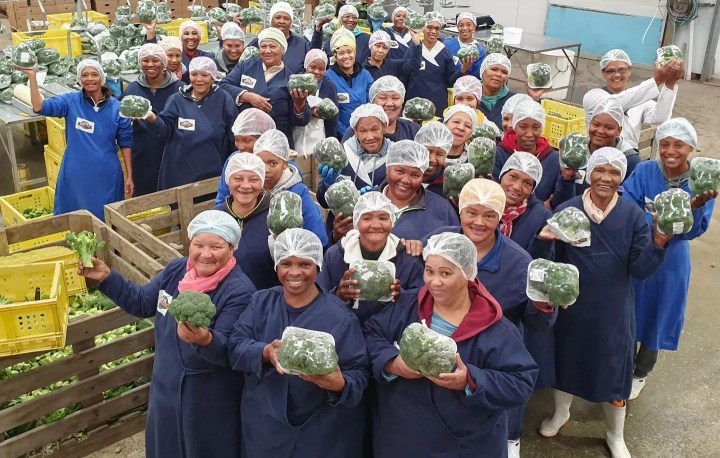ISS TODAY OP-ED
Free to Grow programme sees success through workplace violence-prevention education

A new project, delivered during working hours, brings business and civil society together to make South Africa safer. Said one participant -'This helped me to be a better father for my children and to communicate effectively instead of getting angry and aggressive. This improved relationships in our home, and I am very thankful for that.'
A reported 293 children and 895 women were murdered in South Africa between April and June this year, according to the South African Police Service. That’s nearly 10 women and three children a day. Addressing violence against women has become a national priority over the past three years in one of the world’s most violent societies.
It is well established that violence against women and violence against children are intersecting problems — when women are harmed, children are often exposed to the violence as witnesses or victims.
We also know that children most often experience and witness violence at home, and that many factors perpetuate family violence. Data shows that this violence is predominantly carried out by men against women and children within intimate partner relationships and immediate family contexts. This kind of violence is cyclic and extends from one generation to another.
Children who witness or experience violence are more likely to become perpetrators or victims of violence in their lifetime. A deeply embedded culture of violence is reinforced by norms and beliefs that support the use of violence. These intergenerational cycles of violence are very difficult, but not impossible, to break.
Family violence also has a profound impact in the workplace. It reduces productivity and has been associated with higher rates of absenteeism, poor employee retention, and reduced opportunities for career progression. Conflict at home also influences how those affected communicate and interact with their colleagues; they either withdraw or can bring the conflict to work.
Despite this bleak outlook, there is hope and promise for a better future when researchers, non-governmental organisations (NGOs) and businesses work together.
Programmes to address violence
Research evidence shows that parenting programmes can positively impact and break the cycle of violence in the family setting. We also know that initiatives that transform harmful, inequitable gender norms, beliefs and values can reduce violence against women and children.
However, until now, most parenting and gender-based violence prevention programmes were designed for and delivered in communities during working hours. For South Africans who are employed, particularly those in low- and semi-skilled occupations who work long shifts, attending these programmes is very difficult.
At the intersection of these problems, there’s also a potential opportunity — where the workplace becomes the site for turning the tide against violence. Offering family violence prevention programmes at work enables access for those who are employed. And according to Institute for Security Studies (ISS) research, it’s also likely to have positive outcomes for employees and the workplace alike. At the same time, the workplace can become a safe place for those experiencing family violence to access support.
Workplace support
The ISS and the South African Parenting Programme Implementers Network (Sappin) used this opportunity to develop Free to Grow — a new programme that addresses violence against women and children at the same time. It’s also one of the first in the country designed to be delivered in the workplace, during working hours.
In 2022 and 2023, the programme was implemented by facilitators from the Seven Passes Initiative NGO, a part of Sappin that provides services to Tikketai — a busy agricultural processing business on the Garden Route in the Western Cape province.
Participants and the business owner agree that delivering such a programme in a busy workplace is feasible, and that it has led to shifts in a positive direction.
Employees told the ISS that the programme helped them improve their relationships with their children. They applied their new skills to manage conflict better, and were better able to calm down when feeling stressed or agitated after an interpersonal confrontation. This enabled them to respond without conflict or aggression. Their new parenting skills also helped them manage their children’s behaviour without hitting or shouting at them.
One man who attended the programme said, “This helped me to be a better father for my children and to communicate effectively instead of getting angry and aggressive. This improved relationships in our home, and I am very thankful for that”.
The business has also benefitted. The company’s owner told the ISS that since the programme had been delivered, no staff complaints had been laid against a co-worker — something that previously happened often and would disrupt production.
With each rollout of the programme, the number of participants has grown. Some employees have even participated twice — showing that the programme has value for both the business and its staff.
Business can, and should be, a partner in efforts to reduce violence in South Africa. By working together, NGOs, institutions like the ISS and businesses can help build a positive future for the country. DM
Thandi van Heyningen, Senior Researcher, Justice and Violence Prevention, Institute for Security Studies (ISS) Pretoria.
First published by ISS Today.





Comments - Please login in order to comment.